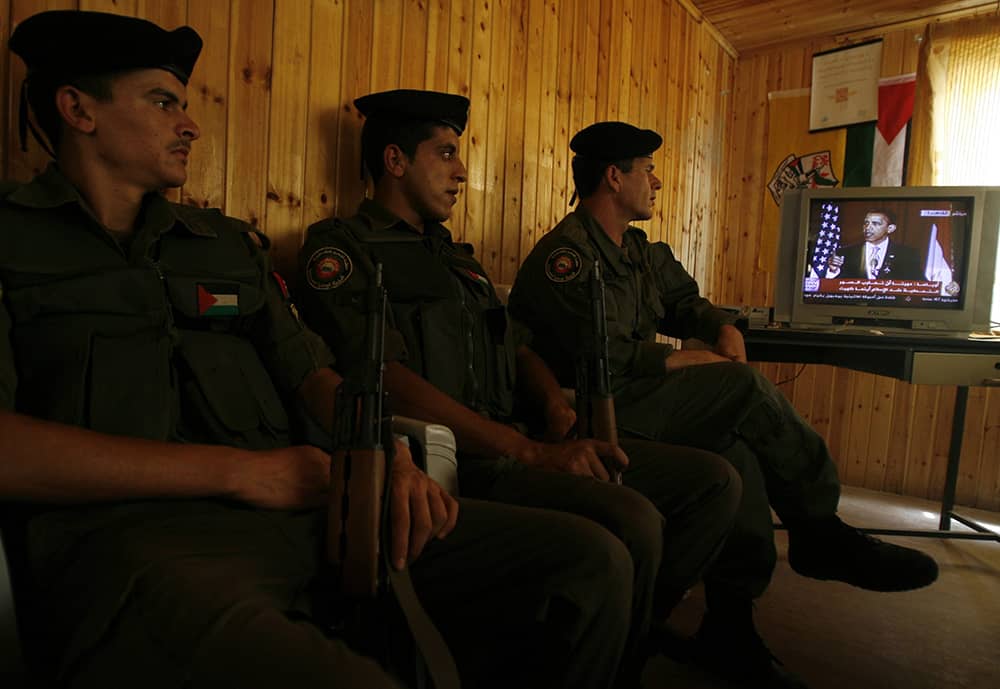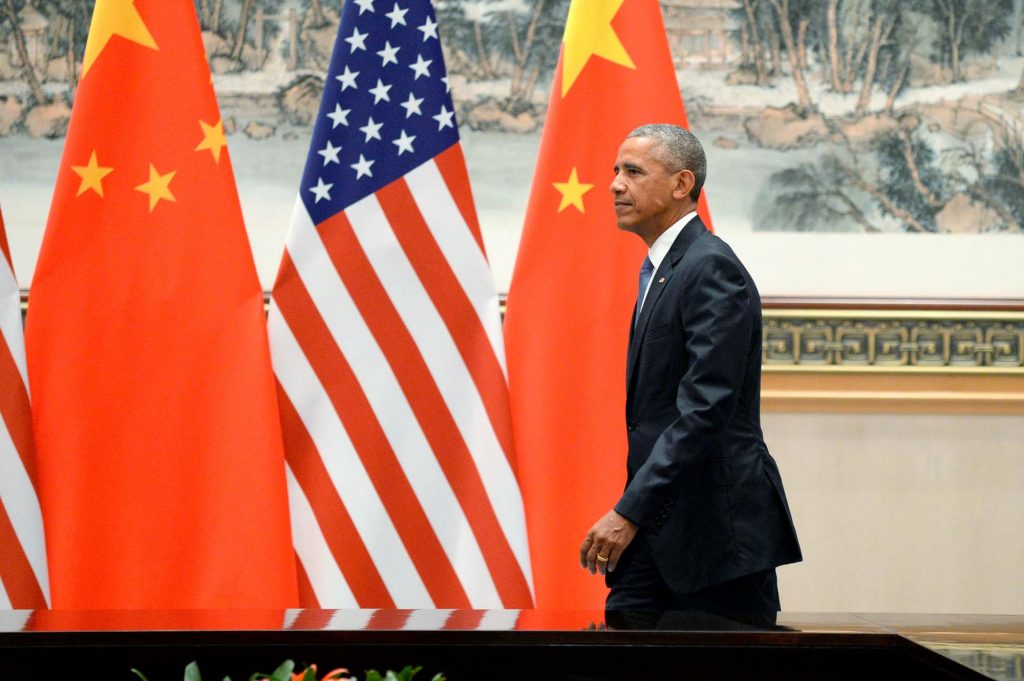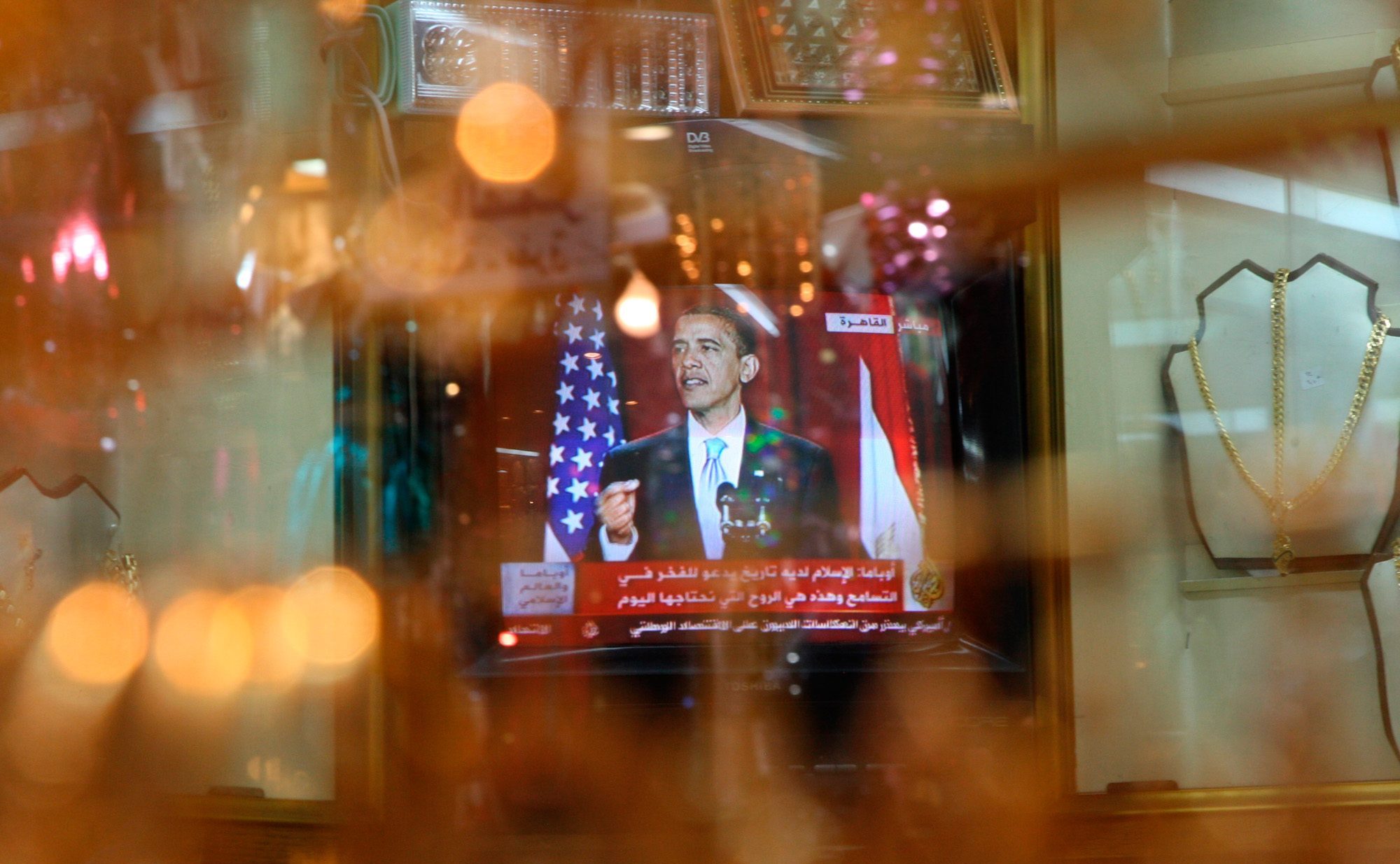By Barack Obama. Crown, 2020, 751 pages.
Barack Obama’s election in November 2008 was a landmark event in recent American history. Serving as a US diplomat in Stockholm at the time, I encountered Swedes who seemed dumbstruck by Americans’ failure to play their presumed designated role. Swedes learn from large parts of their media that Americans are a deeply prejudiced people, and yet these Americans had just gone and elected an African American in a near landslide. My home state of Iowa, where over 90% of the population identifies as white, voted overwhelmingly for Obama in 2008 and again in 2012. Surprising the Swedes was a small pleasure of Barack Obama’s first term election. More importantly, I felt proud of my fellow Americans for choosing the best person to lead our country regardless of ethnicity or race.
Twelve years later, the publication of Obama’s presidential memoirs was also widely anticipated. He had already written a compelling autobiography, Dreams from My Father, when he was 33. Unlike so many other American celebrities, he would not go the easy route of hiring a ghostwriter but rather would take the time to write in his own strong, nuanced voice. The first of two projected volumes came out last fall and was met with uncritical acclaim bordering on hosannas from the mainstream US media. In truth, I found the volume well written but overall disappointing, just like the Obama administration itself, especially in the arena I know best—foreign policy.
Presidential memoirs are difficult to enjoy because so few are well written and authentic. The one outstanding exception—that of Ulysses S. Grant—is really about his time as a general in the Civil War, with very little about his eight years as president. Grant knew that military history would sell, and his contribution fits most comfortably on a shelf next to Julius Caesar’s Gallic War.
Obama’s first volume easily sails over the low bar set by other recent examples of the genre. The memoirs of George W. Bush are written in such a flat, declarative style that one wonders if his ghost writer was trying too hard to capture his Texas drawl. Those of Bill Clinton are, despite flashes of political insight, a meandering 950-page narration of meetings and events that cries out for a strong editor.
By contrast, Obama tells us upfront that he will “pull the curtain back a bit and remind people that, for all its power and pomp, the presidency is still just a job.” He wants to capture his lived experience of eight years in the White House in a folksy style somewhat reminiscent of the memoirs of Harry S. Truman (who, for instance, described his differences with the “striped-pant boys in the State Department”).
At the same time, Obama wants to draw back and dispassionately analyze the larger societal context in which he and others made decisions. Here, for example, he reflects on the failure of his first-term Israeli–Palestinian peace initiative:
Having posed an interesting question and having hinted that the individual Israeli and Palestinian leaders with whom he had to work were the problem, Obama returns to the narrative and provides no further information on his thinking of why it was a good time to launch this peace initiative in the first place. As he oscillates between the folksy and the professorial, between personal details of everyday life in the White House and philosophical inquiries often sparked by his creative imagining of what others are thinking, one looks in vain for a focus on the inputs into his decisions as president. It is entertainment, but is it enlightenment?
On the substance of Obama policies, the book, like all such memoirs, highlights the successes (economic recovery, health insurance, counter terrorism). But to my mind it also underscores two major failings on foreign policy. First, relying on his oratory to make US policy, he and his team failed to plan for and follow up with programs to amplify and implement the goals he expressed, especially in the Middle East. Second, surrounding himself with the Washington establishment, he fell prey to group think and largely missed the rising threat of China.

Photo credit: REUTERS/Mohamad Torokman
Obama arrived in office after serving less than one term in the Senate and without having significant executive experience. If powerful foreign policy speeches were an undeniable strength, practical implementation was a weakness, robbing the speeches of long-term strategic benefits.
A prime example was the June 2009 speech at Cairo University, which was intended to address the world’s Muslims and reset relations with them: “As the cheers and applause continued through my discussions of democracy, human rights and women’s rights, religious tolerance and the need for a true and lasting peace between a secure Israel and an autonomous Palestinian state, I could imagine the beginnings of a new Middle East” (p. 364).1 But days after the Cairo speech, when millions in Iran took to the streets to protest a rigged presidential election, the Obama administration was largely silent in the face of a brutal regime crackdown. There was no plan to translate his lofty rhetoric into concrete programs that could support civil society in hard-to-reach repressive countries like Iran.
Obama’s Secretary of Defense Robert Gates wrote this about the Cairo University speech in his recent book, Exercise of Power: “Sadly, because there was no policy framework or strategy underpinning or following up on the speech, its impact had the half-life of a bottle rocket” (p. 100).
Libya provides the worst example of the Obama administration’s foreign policy malpractice. Obama describes in good detail the factors that led the US to develop a military campaign to disable Libya’s air defenses and stop Gaddafi from massacring his own people. But he devotes one sentence to post-war planning: “Because North Africa was in Europe’s backyard and not ours, we would ask the Europeans to pay for much of the post-conflict aid that would be required to rebuild Libya and help the country transition to democracy once Gaddafi was no longer in power” (p. 659). We all know how that wishful thinking turned out. It is inexcusable that, eight years after intervening in Iraq, the US had no postwar plan for stabilizing and securing Libya.
Again, here is Robert Gates in his more honest assessment of the intervention in Libya in Exercise of Power:
China plays a bit role in A Promised Land, mentioned in only six of a total 751 pages, and that signifies a second major flaw in Obama’s foreign policy—group think. Despite being an unconventional candidate who campaigned as an outsider, he governed in a very conventional way with the usual cast of Washington establishment figures.
The Washington consensus throughout the Obama presidency was that the country’s greatest threat came from Islamist terrorism. Thus, the Obama administration spent much of its foreign policy time and energy fighting terrorists in Afghanistan, Iraq, Yemen, and Syria. During a G20 meeting in London in 2011, Obama recalls in A Promised Land thinking that “China’s challenge was still decades away—and that if and when it came, it would most likely happen as a result of America’s strategic mistakes” (p. 338). Later on, Obama summarizes his views on China which aligned perfectly with the prevailing wisdom of the Washington establishment:
It was perhaps understandable for Clinton in the 1990s to sponsor China’s integration into the global economy while overlooking its mercantilist trade policy and intellectual property theft, on the theory that China would start to assume the responsibilities of a normative power as it grew richer. By the time of the Obama administration, however, the evidence was there for all to see. China had no intention of abiding by international norms. Instead it would reclaim what it saw as its rightful place as the leading nation in the world and prevent the US from interfering with that trajectory.
The Washington consensus had been wrong about China, and we should have known that at least by Obama’s first term in office—if not earlier. In particular, the Obama administration failed to assess how the rise of Xi Jinping would lead to more risk-taking and aggressive Chinese policies, which started after the 2008 financial crisis and accelerated during Obama’s tenure. Throughout his eight years in office, Obama continued to largely ignore the China threat. He did make a belated attempt in his second term to rebalance toward East Asia, organizing a trade alliance to counter China’s influence—the Trans-Pacific Partnership—but that is a tale for volume two. Today, the consensus has shifted and everyone from the military to the think tanks is now focused on China to the exclusion of nearly all else. So goes the Washington establishment.

Barack Obama at the G20 Summit in Hangzhou, China. Photo credit: REUTERS/Wang Zhao
I had hoped for better from candidate Obama when he was elected in 2008. But one thing I never assumed—which still gets airtime in the media—was that the first African American president had some special responsibility to address race relations in the United States. That is not a fair burden to shift onto any one person and certainly not our first African American president. I did hope that he would be a great president, one who would dramatically improve the situation we had inherited from his predecessor who had left us mired in wars overseas and in a deep recession at home.
The record as presented in A Promised Land, as entertaining and well written as it is, does not make the case for a great president. The Obama memoir, like his presidency, over-promises and under-delivers. But it is too early to assess this man’s full legacy, and I look forward to his second volume of presidential memoirs.
1 The Cairo speech came during Obama’s first visit to the Middle East as president, when he visited Saudi Arabia and Egypt but not Israel. He defends the decision to skip Israel in the book by claiming that the Israeli government asked him not to come, a strange request if it were true. The truth is more complex. Israeli officials wanted an Obama visit to highlight the strength of the bilateral relationship, similar to the goal of his visit to Saudi Arabia. Obama wanted to visit Israel to highlight the need for progress with the Palestinians. When the visit’s agenda could not be agreed upon, Obama simply demurred, making an initial major misstep with Israel.

